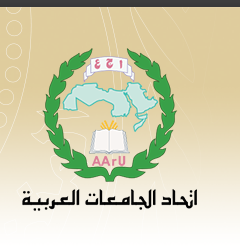Arab Journal of Administration المجلة العربية للإدارة
Article Title
Abstract
The study aims at identifying the reality of the academic unethical dimension of King Saud University’s faculty through revealing the key aspects of unprofessional behavior among the faculty members, from the viewpoints of the faculty members themselves. It also seeks to determine the key factors leading to unprofessional practices, from the faculty members’ point of view, and to identify the different responses of the sample members based on personal and occupational variables. To achieve such objectives, the descriptive survey method has been applied through a survey of two pillars to research the opinions of faculty members in different colleges and scientific grades at King Saud University. The study’s data and information have been analyzed with certain results concluded; namely that the sample individuals are not in favor of the pillar of the key factors leading to unprofessional practices, on the basis of both academic and personal dimensions. Instead, they presented a number of other aspects of unethical behaviors, from their perspective; like putting students down, non-understanding of student’s situations, and rough treatment. The results indicated that the sample individuals are in favor of the entire pillar of the factors leading to unethical behaviors in some of the faculty members. In addition, the sample individuals indicated a number of additional aspects which, from their viewpoint, result in unethical behaviors in some of the faculty members; namely discrimination among the faculty members based on the nationality or other personal reasons, non-formation of committees inside divisions to organize the division’s activities, as well as lack of direct control and penalties. Presence of statistics-oriented differences in the responses of the sample individuals, in terms of the study’s both pillars, is attributable to the majority of personal and organizational variables of the study. The study concluded with number of recommendations, amongst them are: the necessity for treating the faculty members equally and; meeting with the faculty members on regular basis to update them with the latest administrative and education-related resolutions and respond to their queries regarding the educational process and ways to improve it; prioritizing the student’s interest; activating ethical blogs in universities; in addition to adopting and updating the penalties’ system; reducing personal attempts, when setting the duties and responsibilities, by means of having clear and accurate job descriptions for all academic and administrative posts.
Recommended Citation
AL-Kahtani, Amani Bani
(2019)
"Moral Dimension in Academic Work with Faculty Members at Universities: A Field Study on King Saud University,"
Arab Journal of Administration المجلة العربية للإدارة: Vol. 39
:
No.
4
, Article 5.
Available at:
https://digitalcommons.aaru.edu.jo/aja/vol39/iss4/5

